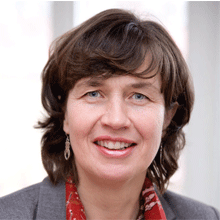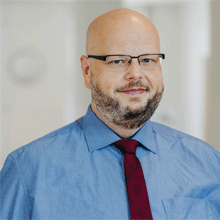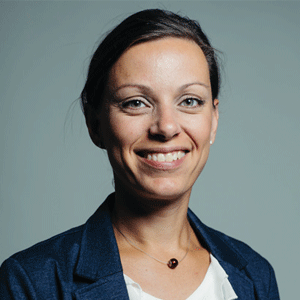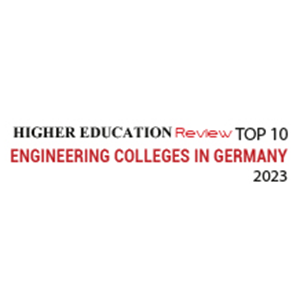Otto-Von-Guericke-Universitat Magdeburg: A Frontrunner In Innovation & Experiential Learning In Engineering Education
By Prof. Dr.-Ing. Ulrike Steinmann, Dean of the Faculty for Electrical Engineering and Information Technology
Germany is an Engineering country. Many famous brands with well-known engineering products shape the German engineering market and hence also the engineering education landscape. The Otto Von Guericke University Magdeburg (OVGU) is a visionary in the German engineering education space. The patron of the university was a physicist and engineer in the 17th century.
He invented the air pump and demonstrated the forces of air pressure with the famous hemisphere experiment. In 1953, the Technical College for Heavy Machinery Engineering (Hochschule fur Schwermaschinenbau) with several engineering departments was founded in the ruins of the destroyed city of Magdeburg. The Technical College developed into the Technical University of Magdeburg and after the German reunification, the OVGU was founded on these roots in 1993. The three engineering faculties including the Faculty of Mechanical Engineering, the Faculty of Process & Systems Engineering, and the Faculty of Electrical Engineering and Information Technology are the successors of the founding departments and form together the ‘Engineering Campus’.
The OVGU is system-accredited where all study programs are regularly evaluated together with students, alumni, external reviewers, and industrial partners. The institute conducts yearly conferences with students and discusses all aspects of studying including teaching and learning problems, and administrative issues such as visa issues for international students and support in finding industrial contacts for practical internships. The institute aspires to constantly improve its courses and modules and owing to this, OVGU has been able to be a frontrunner in educational and research innovation in Mechanical Engineering, Process & Systems Engineering, and Electrical Engineering making it one of the most preferred engineering institutions in the country.
The Faculty of Mechanical Engineering at OVGU has seven institutes with almost 20 chairs in several disciplines of its engineering field. All chairs have individual labs for their specific subject. Often these labs are used in exercises and lectures to give a practical demonstration as well as learning by doing experience to the students. The Faculty of Mechanical Engineering is also a member of the association ‘Fakultatentag fur Maschinenbau und Verfahrenstechnik, FMVT’ (Faculty Association for Mechanical and Process Engineering). For more than 20 years it is carrying the quality seal of the FMVT.
Adding more about the faculty, Prof. Dr.-Ing. habil. Thorsten Halle - Dean of the Faculty of Mechanical Engineering says, “As a member of the FMVT, we are actively contributing to the development process of education in Mechanical Engineering. With this engagement, we want to ensure that the nationwide quality aims of engineering education are following the new trends and developments in our field.
Our curriculum is designed to provide students with a comprehensive understanding of various aspects of mechanical engineering, including manufacturing, design, analysis, and research.
The courses also incorporate modern technologies such as automation, simulation, and robotics, which prepare students for the future demands of the industry. Besides the classical engineering subjects, we also have a strong focus on the planning, control, and logistics of modern manufacturing systems and supply chains”. The faculty offers international students three unique English Master's programs in ‘Systems Engineering for Manufacturing’ (SEM), ‘Biomechanical Engineering’ (BiME), and ‘Computation Methods in Engineering’ (CoME). Project-orientated modules have been implemented in all study courses. Here the students are solving problems in small teams. They learn how to organize, document, and present their work. Som of the projects are directly linked to industry and run in direct cooperation. The faculty also leverages the partnerships OVGU has with various research institutions including the Fraunhofer Institute for Factory Operation and Automation IFF and other companies providing students with opportunities for internships, research projects, and collaborations.

Prof. Dr. Franziska Scheffler,
Vice Dean Faculty of Process & Systems
Engineering
The Faculty for Process & Systems Engineering has four institutes - the Institute of Process Engineering (IVT), the Institute of Instrumental & Environmental Technology (IAUT), the Institute of Fluid Dynamics and Thermodynamics (ISUT), and the Institute of Chemistry (ICH). Also, there are almost 20 chairs doing research in several disciplines including research on - Particle technology and particle systems, Chemical product development and analytical product characterization, Innovative material and energy transformation processes, Dynamics of process engineering systems, and Probability methods in engineering calculations.
Talking more about the unique learning experiences offered by the faculty, Prof. Dr. Franziska Scheffler, Vice Dean Faculty of Process & Systems Engineering says, “Our curriculum is designed to provide students with a comprehensive understanding of various aspects of chemical and process engineering, including biotechnology, safety, and research. Besides the classical engineering subjects, it also has a strong focus on the planning, control, and simulation of new processes.
Aside from this, we also offer international students two unique English Master programs in Chemical and Energy Engineering (CEE) and Process Safety and Environmental Engineering (PSEE)”. CEE aims at providing the students with in-depth knowledge and competencies in chemical and energy engineering which enables them to use new scientific methods for their work and to master a broad variety of permanent new challenges in the fields of research, practical application of scientific results, and teaching.
They finish the program well-prepared for their future professional career.
PSEE deals with the economical usage of energy resources, safe production and handling of materials, and the protection of the environment. PSEE aims to educate experts for the industry as well as for authorities, research organizations, and higher education. Graduates from the program are versed in the natural scientific fundamentals of technical processes, especially those related to safety and the environment, and think and act holistically in the assessment of safety and environmental concerns and their prevention and mitigation.

Prof. Dr.-Ing. habil. Thorsten Halle,Dean of the Faculty of Mechanical
Engineering
The Faculty of Electrical Engineering and Information Technology has four institutes with 16 chairs in several disciplines of its engineering field. In line with the research areas, these chairs have diverse laboratories and testing environments. These labs are accessible to students as part of internships and research projects or bachelor and master theses. From the medical technology research campus ‘STIMULATE’ to state-of-the-art control rooms for monitoring and controlling the entire European energy network to laboratories for measuring electromagnetic emissions the faculty offers several opportunities to experience electrical engineering in all its facets.
The faculty’s Electrical Engineering and Information Technology (EEIT) Master's program is a four-semester, research-oriented course divided into compulsory modules, compulsory elective modules, and the Master's thesis. The theoretical knowledge is taught at a high level with innovative teaching methods. Soft skills are learned in a seminar on scientific working, writing, and presenting. The optional specialization courses are designed to provide students with knowledge, insight, and skills pertaining to sophisticated technologies according to the main research areas of the Faculty of Electrical Engineering and Information Technology. These research areas are Automation Systems, Information and Communication Technology, and Power and Energy.
Adding more about the courses offered by the faculty which might be more appealing for international students, Prof. Dr.-Ing. Ulrike Steinmann – Dean Faculty for Electrical Engineering and Information Technology says, “We offer international students unique English Master programs in Electrical Engineering and Information Technology. Also, with the interdisciplinary, four-semester Master's degree in Medical Systems Engineering (MSE), we offer a combination of different engineering disciplines with a constant focus on the application of knowledge from these disciplines in the field of medicine”. The latter is a research-oriented program linked to the Medical Technology Research Campus and the Faculty of Medicine, in which students acquire high-level knowledge in medical imaging, medical intervention systems, and modelling of physiological and biological systems, among others.
He invented the air pump and demonstrated the forces of air pressure with the famous hemisphere experiment. In 1953, the Technical College for Heavy Machinery Engineering (Hochschule fur Schwermaschinenbau) with several engineering departments was founded in the ruins of the destroyed city of Magdeburg. The Technical College developed into the Technical University of Magdeburg and after the German reunification, the OVGU was founded on these roots in 1993. The three engineering faculties including the Faculty of Mechanical Engineering, the Faculty of Process & Systems Engineering, and the Faculty of Electrical Engineering and Information Technology are the successors of the founding departments and form together the ‘Engineering Campus’.
The OVGU is system-accredited where all study programs are regularly evaluated together with students, alumni, external reviewers, and industrial partners. The institute conducts yearly conferences with students and discusses all aspects of studying including teaching and learning problems, and administrative issues such as visa issues for international students and support in finding industrial contacts for practical internships. The institute aspires to constantly improve its courses and modules and owing to this, OVGU has been able to be a frontrunner in educational and research innovation in Mechanical Engineering, Process & Systems Engineering, and Electrical Engineering making it one of the most preferred engineering institutions in the country.
The Faculty of Mechanical Engineering
The Faculty of Mechanical Engineering at OVGU has seven institutes with almost 20 chairs in several disciplines of its engineering field. All chairs have individual labs for their specific subject. Often these labs are used in exercises and lectures to give a practical demonstration as well as learning by doing experience to the students. The Faculty of Mechanical Engineering is also a member of the association ‘Fakultatentag fur Maschinenbau und Verfahrenstechnik, FMVT’ (Faculty Association for Mechanical and Process Engineering). For more than 20 years it is carrying the quality seal of the FMVT.
Adding more about the faculty, Prof. Dr.-Ing. habil. Thorsten Halle - Dean of the Faculty of Mechanical Engineering says, “As a member of the FMVT, we are actively contributing to the development process of education in Mechanical Engineering. With this engagement, we want to ensure that the nationwide quality aims of engineering education are following the new trends and developments in our field.
Our curriculum is designed to provide students with a comprehensive understanding of various aspects of mechanical engineering, including manufacturing, design, analysis, and research.
"The OVGU is systemaccredited where all study programs are regularly evaluated together with students, alumni, external reviewers, & industrial partners"
The courses also incorporate modern technologies such as automation, simulation, and robotics, which prepare students for the future demands of the industry. Besides the classical engineering subjects, we also have a strong focus on the planning, control, and logistics of modern manufacturing systems and supply chains”. The faculty offers international students three unique English Master's programs in ‘Systems Engineering for Manufacturing’ (SEM), ‘Biomechanical Engineering’ (BiME), and ‘Computation Methods in Engineering’ (CoME). Project-orientated modules have been implemented in all study courses. Here the students are solving problems in small teams. They learn how to organize, document, and present their work. Som of the projects are directly linked to industry and run in direct cooperation. The faculty also leverages the partnerships OVGU has with various research institutions including the Fraunhofer Institute for Factory Operation and Automation IFF and other companies providing students with opportunities for internships, research projects, and collaborations.

Prof. Dr. Franziska Scheffler,
Vice Dean Faculty of Process & Systems
Engineering
The Faculty of Process & Systems Engineering
The Faculty for Process & Systems Engineering has four institutes - the Institute of Process Engineering (IVT), the Institute of Instrumental & Environmental Technology (IAUT), the Institute of Fluid Dynamics and Thermodynamics (ISUT), and the Institute of Chemistry (ICH). Also, there are almost 20 chairs doing research in several disciplines including research on - Particle technology and particle systems, Chemical product development and analytical product characterization, Innovative material and energy transformation processes, Dynamics of process engineering systems, and Probability methods in engineering calculations.
Talking more about the unique learning experiences offered by the faculty, Prof. Dr. Franziska Scheffler, Vice Dean Faculty of Process & Systems Engineering says, “Our curriculum is designed to provide students with a comprehensive understanding of various aspects of chemical and process engineering, including biotechnology, safety, and research. Besides the classical engineering subjects, it also has a strong focus on the planning, control, and simulation of new processes.
Aside from this, we also offer international students two unique English Master programs in Chemical and Energy Engineering (CEE) and Process Safety and Environmental Engineering (PSEE)”. CEE aims at providing the students with in-depth knowledge and competencies in chemical and energy engineering which enables them to use new scientific methods for their work and to master a broad variety of permanent new challenges in the fields of research, practical application of scientific results, and teaching.
They finish the program well-prepared for their future professional career.
PSEE deals with the economical usage of energy resources, safe production and handling of materials, and the protection of the environment. PSEE aims to educate experts for the industry as well as for authorities, research organizations, and higher education. Graduates from the program are versed in the natural scientific fundamentals of technical processes, especially those related to safety and the environment, and think and act holistically in the assessment of safety and environmental concerns and their prevention and mitigation.

Prof. Dr.-Ing. habil. Thorsten Halle,Dean of the Faculty of Mechanical
Engineering
The Faculty of Electrical Engineering & Information Technology
The Faculty of Electrical Engineering and Information Technology has four institutes with 16 chairs in several disciplines of its engineering field. In line with the research areas, these chairs have diverse laboratories and testing environments. These labs are accessible to students as part of internships and research projects or bachelor and master theses. From the medical technology research campus ‘STIMULATE’ to state-of-the-art control rooms for monitoring and controlling the entire European energy network to laboratories for measuring electromagnetic emissions the faculty offers several opportunities to experience electrical engineering in all its facets.
The faculty’s Electrical Engineering and Information Technology (EEIT) Master's program is a four-semester, research-oriented course divided into compulsory modules, compulsory elective modules, and the Master's thesis. The theoretical knowledge is taught at a high level with innovative teaching methods. Soft skills are learned in a seminar on scientific working, writing, and presenting. The optional specialization courses are designed to provide students with knowledge, insight, and skills pertaining to sophisticated technologies according to the main research areas of the Faculty of Electrical Engineering and Information Technology. These research areas are Automation Systems, Information and Communication Technology, and Power and Energy.
Adding more about the courses offered by the faculty which might be more appealing for international students, Prof. Dr.-Ing. Ulrike Steinmann – Dean Faculty for Electrical Engineering and Information Technology says, “We offer international students unique English Master programs in Electrical Engineering and Information Technology. Also, with the interdisciplinary, four-semester Master's degree in Medical Systems Engineering (MSE), we offer a combination of different engineering disciplines with a constant focus on the application of knowledge from these disciplines in the field of medicine”. The latter is a research-oriented program linked to the Medical Technology Research Campus and the Faculty of Medicine, in which students acquire high-level knowledge in medical imaging, medical intervention systems, and modelling of physiological and biological systems, among others.



